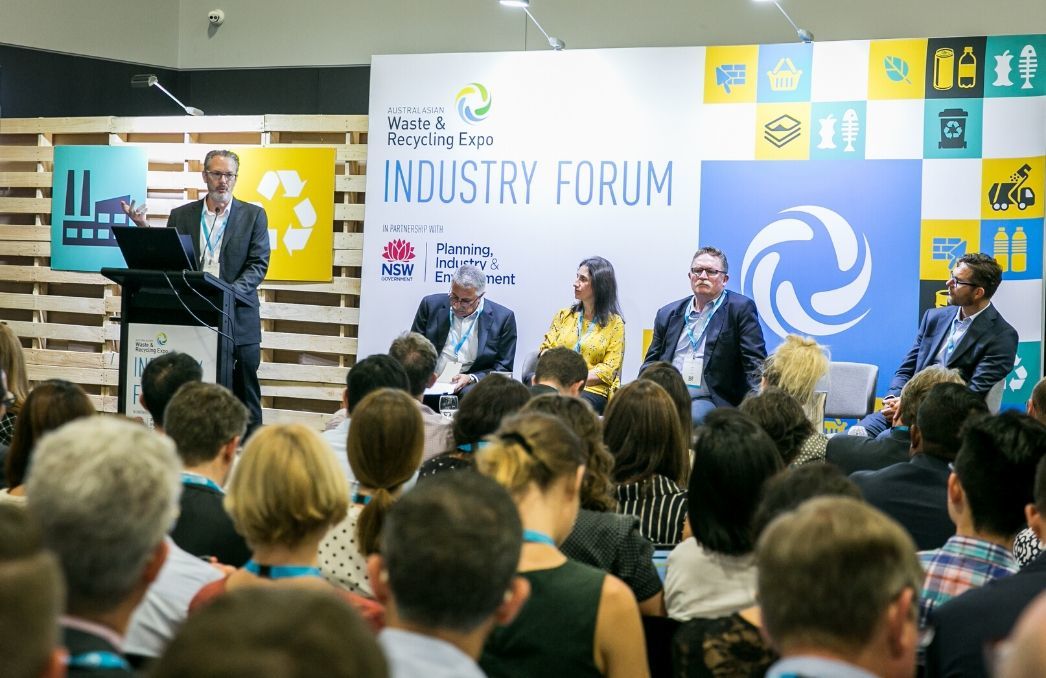The Future is Recycling
Recycling contracts in Australia are under threat and a crisis is looming after China implemented its National Sword Policy on January 1, 2018, the question remains, what now?
Experts from the waste and recycling sector came together at the Australasian Waste and Recycling expo (AWRE) 2019, to discuss why recycling is so important for Australian communities, and how Australia is strategically placed across government, industry and commercially to really impact the environment and communities at such a vital time.
Kathy Giunta from the Department of Planning, Industry and Environment, began by exploring some of the realities facing the resource recovery sector. Curb side recycling was introduced to Australia almost 20 years ago and in that time, materials going into household bins has significantly changed. With the introduction of nano materials and other composite materials the industry has had to adapt to accommodate the changing waste landscape. This hasn’t’ always been an easy process with China sending Australian waste back, due to contamination. A series of similar issues has caused Australian communities to lose faith in the recycling process and now the industry needs to work hard to restore this faith and educate communities on recycling best practice.
Graham Knowles from IQ Renew agreed that China returning Australia’s plastic waste really highlighted the issues facing the industry and confirmed that the solution was no to send our waste offshore; but invest in technologies in Australia to transform this plastic into other useable commodities. He explained that this technology already exists in Australia, IQ Renew have the capability to turn plastic into crude oil, however for this to be a viable option in Australia the technology needs to be scaled up and supported by local and federal governments.
Tony Grebenshikoff from Suez mentioned that if recycling is the future then Australian manufactures and producers need to adopt a cradle to grave philosophy, by which manufacturers design a product with its entire life in mind, can it be recycled? And where does it go at the end of its life? If recycling is the future, then the industry needs to align with one common goal that benefits both the economy and the environment. There cannot be one without the other, no economic sustainability, business ceases to exist and no environmental management, the eco-system suffers. Tony said that he didn’t have all the answer but if the industry can recognise it has an issue then solutions can be found.
The question of a 20-year waste strategy turned into a bigger discussion about the need for innovation within the waste sector. The Panel collectively agreed that in the coming yeas waste to energy would be one of the emerging technologies.
Graham Knowles highlighted that there were 1.3 billion tones nationally of plastic, more than 50% of that end of life plastic could be converted into oil. If the industry could get enough support for projects like this, then it could very well become a reality. Graham pointed out that any project of this size needs government and community support in order to succeed.
The panel agreed that the future is recycling but there are some things Australia needs to do better. Australia is a small county of 25 million people, with eight state and territory governments that all regulate waste management, for the waste industry to thrive in Australia there needs to be national harmonisation of waste laws.
-
Register for AWRE 2024 now
- Register

